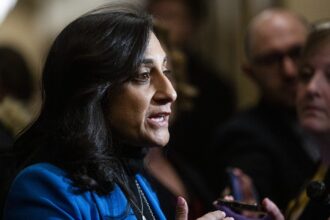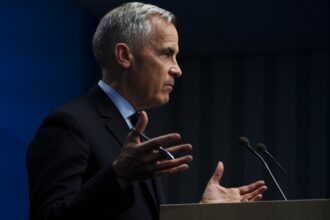In an unprecedented move reflecting the growing crisis in Canada’s healthcare system, the Canadian Medical Association (CMA) has issued a formal appeal to parliamentarians, demanding immediate action on long-promised healthcare reforms. The urgent call comes as hospital emergency departments across the country report critical overcrowding and wait times for essential services reach alarming levels.
“We’re witnessing a system on the brink of collapse,” said Dr. Kathleen Ross, president of the CMA, during yesterday’s press conference in Ottawa. “The time for political posturing has passed. Canadians deserve concrete action on healthcare promises that have been repeatedly made but remain unfulfilled.”
The association’s appeal specifically highlights four priority areas requiring immediate attention. Topping the list is the critical shortage of healthcare professionals, with nearly six million Canadians currently lacking access to a family physician. This shortage has created a dangerous domino effect throughout the system, with patients increasingly turning to already overwhelmed emergency departments for primary care.
The CMA’s comprehensive proposal also addresses the urgent need for modernized healthcare infrastructure. According to their analysis, many Canadian hospitals are operating with outdated facilities and technology, some dating back more than 50 years. The association estimates that an investment of $28 billion would be required to bring facilities up to modern standards.
“We cannot deliver 21st-century healthcare in facilities built for another era,” explained Dr. Ross. “Modernization isn’t just about buildings—it’s about creating environments where healthcare professionals can work efficiently and patients can receive dignified care.”
The appeal comes at a politically sensitive moment, with Parliament reconvening amid increasing public frustration over healthcare access. A recent national survey revealed that 78% of Canadians consider healthcare the most pressing issue facing the country, surpassing concerns about inflation and housing affordability.
Health Minister Mark Holland acknowledged the CMA’s concerns but defended the government’s approach. “We’ve committed $196 billion in healthcare funding to provinces over the next decade,” Holland stated. “However, we recognize that money alone isn’t the solution—systemic reform must accompany these investments.”
Opposition leaders were quick to criticize the government’s response. Conservative health critic Stephen Ellis called the situation “a national emergency requiring immediate federal leadership,” while NDP leader Jagmeet Singh emphasized his party’s continued push for expanded pharmacare and dental care programs.
Provincial healthcare ministers are scheduled to meet next month to discuss implementation strategies for federal funding commitments. However, tensions remain high regarding accountability measures attached to these funds, with several provinces resisting what they describe as federal overreach into their constitutional jurisdiction.
The CMA’s intervention represents a significant escalation in advocacy from a traditionally measured organization. Healthcare policy experts note that such direct appeals to Parliament from the medical community have historically preceded major healthcare reforms.
As Canadians continue facing extended wait times and difficulty accessing essential services, the fundamental question emerges: Will this parliamentary session finally deliver the substantive healthcare reforms that have been promised for decades, or will Canadians be left waiting for care that never seems to arrive?

























